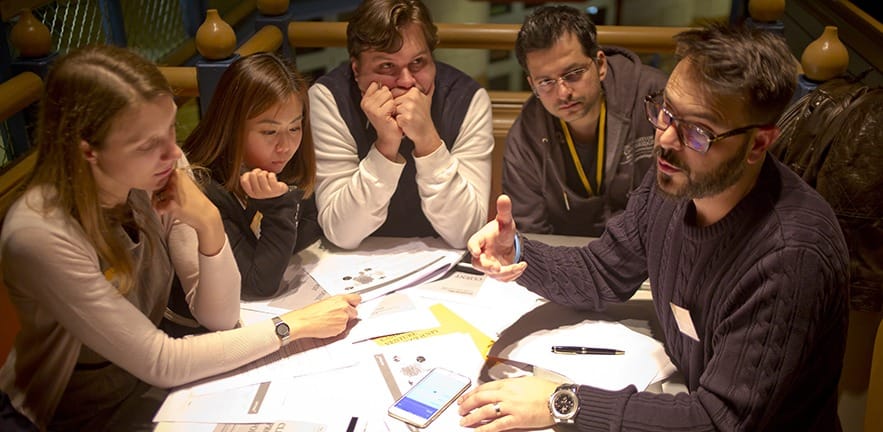How much work will your MBA involve? How many hours teaching and studying are there? What about assignments, projects and making time for the important extra-curricular options? What about work-life balance?
These are questions you should ask when considering an MBA, and researching business schools with potentially different programme formats and durations. Having a realistic understanding of the commitment you are making is key to making the best of the experience – so here are our top five tips on how to manage your MBA workload and maximise your MBA.
- Be focussed
An MBA is an opportunity to expand your horizons, and we encourage our students to arrive with an open mind. But it’s a good idea to focus your ambitions on a few options so that you can adequately explore your choices, and not burn-out trying to do everything. But if something isn’t working, or if new opportunities pique your interest, re-examine your goals, and be open to change direction.Business and Executive Coach, and Cambridge MBA graduate, Songya Kesler says “Each time I was faced with a new activity or commitment, I asked myself, “Does this further or hinder my intention?” The answer was always simple, and it became much easier to say “no” without the fear of missing out.” - Structure your time carefully
With a list of assignments and tasks in front you, don’t panic: logically allocate appropriate time to each item. Be aware of your strengths and weaknesses and be realistic about how much time it takes you to complete a task, be that reading a case or preparing a presentation. Head of the Cambridge MBA Programme, Amy Kennedy-George says “Ensure that you aware of all course deadlines and know who to talk to if you need help or guidance on certain tasks. The sheer amount of reading and assignments on the Cambridge MBA can be daunting, even if you are an experienced professional used to the rigours of a long working week, but it’s certainly not impossible”. - Utilise the ‘lean’ approach
Really think about how much effort you need to put into each task, whether it’s a presentation, assignment or managing a project. Don’t waste time doing things which aren’t going to add value or help you reach your goals. And, don’t overdo things. It can be easy to get lost in small, less important details, such as visual presentation or trivial conversations, which in the grand scheme of things, really aren’t that important. - Use the strengths of others
On the Cambridge MBA, students work in study groups. Songya says “We were given a study group for a reason. Not merely to experience the highs and lows of teamwork, but also to support each other in dividing work to allow time and energy for other opportunities the University of Cambridge has to offer.”Often one of your classmates or colleagues will have expertise in something that you find tricky or haven’t approached before. They can help give you an indication of what the task entails or provide help which means you won’t be stuck working out how to do something. Do you have advanced knowledge of a subject? Don’t forget you might also be able to help your peers too. - Schedule downtime time for yourself
It can be easy to burn out when there are so many options available, if you are studying in Cambridge, you could be up at 05:00 rowing down the Cam, working through a Student Interest Group breakfast meeting before lectures, then up until late finishing one of many assignments. Time to yourself to relax is often one of the first things to go. It’s important to schedule rests, so that you can approach your work with a clear mind. Songya suggests blocking this out in your calendar so that you’d don’t schedule things over it. She also found developing a daily meditation practice useful.Finally, Songya offers this advice: “Know the vision and long-term goals of the project; give yourself time to recover so that you maintain work-life balance and remain at peak mental capacity; and leverage the talents and skills of the people on your team.”
Facts and figures about the Cambridge MBA
Teaching hours: differ by term, but generally a full teaching week includes 26 hours.
Career planning and events: 26 recruiter events and an average of eight hours of careers workshops per term.
Electives: over 50 electives running over second and third terms.


